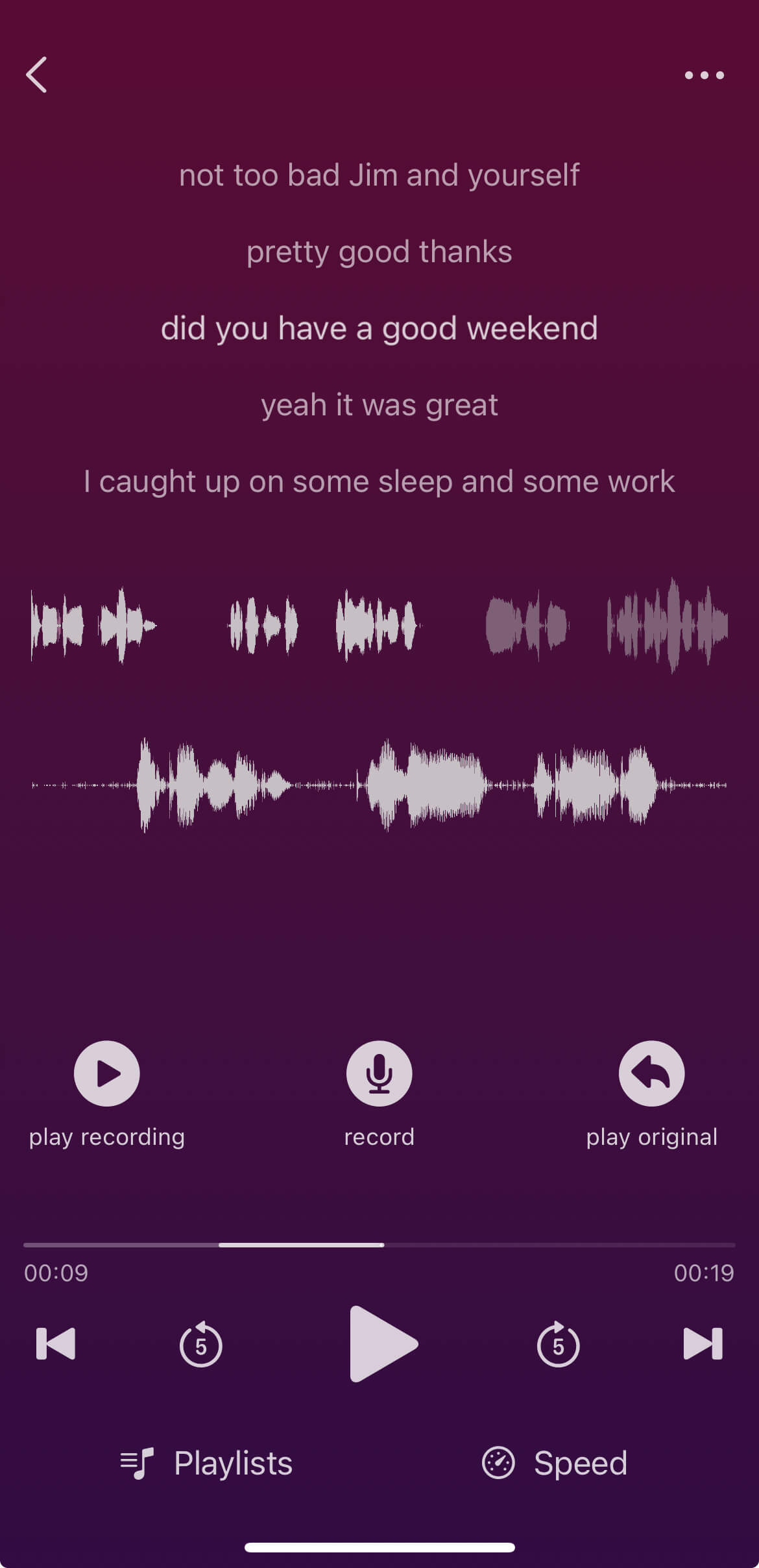Improve Your Spoken English with the Echo Method
8/12/2025
Improve Your Spoken English with the Echo Method | Karen Chung

In this guide, you'll learn how to use the Echo Method for effective shadowing listening practice and to improve your natural intonation.
Imagine you are learning to play the piano. You study the sheet music, analyse it, memorise it,
become very familiar with it and know all the theory inside out.
But — can you actually play it?
Perhaps you are full of theory, yet your fingers have never been properly trained.
Let’s take another example——
Imagine you have a foreign friend who agrees to practise English conversation with you.
In return, you teach them Mandarin Chinese, starting from the basics — the four tones.
You tell them that every word, every syllable, has a fixed tone,
and that tones determine meaning; get the tone wrong, and the listener will have no idea what you mean.
So you show them a chart of the four Mandarin tones.
If you were a foreigner, could you read them out correctly? Would it sound like Mandarin?
Most people I’ve asked laugh and say, “Probably not!”
Then I ask, “So how would you teach them?”
They reply, “I’d read it aloud and let them repeat it.”
I say, “Exactly!”
So why is English teaching so often just black-and-white text on paper, with almost no sound?
Are students supposed to guess?
What does this lead to?
If pronunciation is not accurate, it’s impossible to tell what you’re saying.
In Mandarin, meaning depends on the four tones, but consonants and vowels also matter.
In English, it’s vowels, consonants and stress that matter.
If you don’t learn them to a high standard, what happens?
Take these words: rain, ran, wren, rang.
In fact, the four are pronounced quite differently.
With proper training, anyone can learn to distinguish them.
But if ignored, they end up sounding the same.
Another set: bat, bad, bet, bed, bait.
The difference between bat and bad is voiceless versus voiced consonants.
Furthermore, when the final consonant is voiced, the preceding vowel is lengthened.
So, is this merely an accent problem? Just a bit of a “foreign accent”?
Many people say: “Pronunciation doesn’t matter, as long as you’re understood.”
Perhaps you can be understood, but how much mental effort is the listener using to guess?
This isn’t merely about accent —
it’s about key elements that distinguish meaning being completely ignored.
If, in the same sentence, different words are pronounced the same, how can we know which is which?
What You Need to Learn a Language
The most important thing is a strong desire and a clear goal.
What is your goal?
If it’s important enough, wouldn’t your approach change?
If you were living abroad, having to succeed, and you had to master the local language to do your job — what would you do?
In addition to strong motivation, you also need a good learning method.
When I teach, I read a sentence for students to repeat.
But I found that, before I’d even finished, they had already started speaking.
What does this tell us?
They were not truly listening!
Perhaps they were just reading along or reciting from memory, focusing entirely on themselves,
without actually paying attention to the real sound.
The Echo Method
I realised that the human brain has a fascinating function called echoic memory.
When we hear a sound — whether it’s a sentence or something falling to the ground —
our brain automatically replays it once.
I thought: if this could be applied to language learning,
wouldn’t it help students absorb the sound more fully and practise deep listening?
This method is called the Echo Method, and it has three steps:
- Find an audio clip with a transcript, and select a short segment.
- Look up all words, phrases and cultural references in the sentences until you understand the whole passage.
- During practice: press play to hear 3–4 words, then pause. Don’t repeat immediately.
Replay the sound in your head,
then speak it out loud.
The three steps: listen → echo → repeat.
You must repeat many times — to the point of overlearning —
so it enters your long-term memory and comes out automatically when needed.
Recommended Practice Resources
The best materials are high-quality TV shows and films,
such as The Big Bang Theory or Kiwi Girl.
Practise like this every day — you will improve not only pronunciation but also vocabulary and grammar, all at once.
Just 10 minutes a day, with consistency.
Three Key Takeaways
- When learning a language, don’t think only about yourself — think about the listener’s experience.
- Set goals not just for passing exams, but to enjoy communication with others.
- Be consistent — 10 minutes a day.
If you do these three things, your speaking skills will improve dramatically.
Recommended Tool
A good method combined with the right tool will multiply your results.
We highly recommend Vocheo, an app specially designed for Echo Method practice.
It supports local intensive listening, shadowing, subtitles, waveform comparison,
and AI-powered phrase training to help you master pronunciation, intonation and word usage in real contexts.
Source
This article is adapted from Karen Chung’s talk at TEDxNTUST:
How to Master English Speaking with the "Echo Method"
